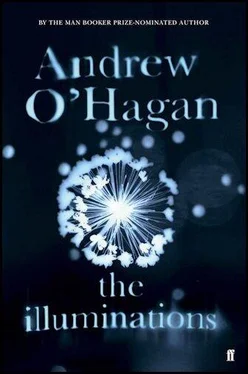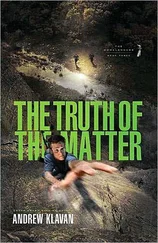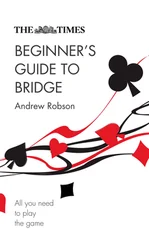Luke shook his head and stared at the table. ‘That was the end of it.’
‘For Mrs Blake, yes. And for your mum. My dad said Harry was like a bird, actually hollow inside, you know, hollow in his bones. He wasn’t a bad man. He just wasn’t there. Wasn’t solid. And she found a purpose in covering for him and was happy in her own way.’
‘It’s hard to imagine,’ Luke said. ‘I knew they had their own secrets, but …’
‘It’s what they’re made of.’
‘All of us,’ he said. ‘We were all made of it. They never said anything.’
‘Never once?’
‘No,’ he said. ‘Not in so many words. When she got ill, she started to talk about a rabbit, and … well, maybe that’s the rabbit in the story. For the last year, so much of her talk has been about Harry and her past.’
‘Happens his wife had known about it for years,’ Sheila said. ‘Knew about his affair. Put up with it. But when he died she
wouldn’t have Anne at the funeral. She just came down from Glasgow and sat in the room with all her things. I remember that week, seeing her on the front steps. She was on her way onto the prom and she tied her headscarf and tried to smile. Gave me fifty pence. Her eyes were so sad.’
Luke was sorry and was lost for a moment. He knew it was monumental, what Sheila had told him, he knew it explained the people he loved. All his life his family had been moving, perhaps invisibly, perhaps unknowingly, around this terrible event that happened years ago and that was never mentioned. His hand shook when he reached for his pint, as if this secret about Anne had suddenly recast the story of his childhood and his mother’s childhood too, changing everything.
‘In Canada they want to put her into a show,’ Luke said. ‘The best of her photographs.’
‘Do they?’
‘Aye. They’ve got some pictures she did when she was young and they say she’s one of the pioneers.’
‘Lord Jesus,’ Sheila said. ‘That was the life she wanted. My mam and dad would be so proud of her.’
IF
Life had been rearranged, and always is.
If Luke had opened the newspaper he bought that morning, if he had listened to Anne’s radio or turned his phone back on, he would have learned that Major Scullion had taken his own life the day before. When he did see the news, he was shocked, though it didn’t really surprise him. He believed that Scullion
knew he would never make it to India. If he hadn’t seen him on that hill above Kajaki, if he hadn’t seen how he rushed into the mortars in one last gasp of the old soldier, he might have been unable to believe it. Scullion loved poetry and he made others love that thing in themselves. Luke tried to calm down and salute him. He wrote a text and sent it to each of the boys:
Remember Charlie at his best. He wanted intelligence back in the game.
Flannigan texted back the regimental motto.
Veritas vos liberabit.
25 AUGUST 1962
In one of the locked cupboards, Luke found a stack of Airfix models of World War II planes. He opened one of them, a Lysander, that was half-built inside the box, a small tube of glue partly squeezed out and gummed around the cap. A betting slip from Ladbrokes was wrapped around the cockpit; it had something written on it in faded blue ink, a few notes about the closing of the Hawker factory at Squires Gate. Luke supposed it was Harry’s hand and the remains of Harry’s hobby.
The ladies had been in that morning. Anne was sitting up in the chair dressed and washed, listening to the radio, wearing a clasp in her hair and some carpet slippers Luke had found at the back of the wardrobe. Sheila was right: she looked beautiful and seemed content, just listening, occasionally looking over
and saying something odd. The girls wanted to take Anne to the Regal Cafe and soon they arrived carrying shoes and winter coats. Anne wanted the scarf with the gloves sewn in and soon they were off down the stairs. ‘Are you all right, Gran?’ Luke said from the door. And when she looked up she was smiling like a gala queen.
‘Shake a leg, Mrs Blake,’ Sheila said. ‘There’s nowt in the world between us and a peach Melba.’
He placed the folders and boxes on the sink unit and then he spread them on the floor. He first opened a green, cloth-coloured album labelled ‘Menier Camp, 1948’. He got lost there, a pier with boats at an angle,
Light through the trees, Clifton Falls
The album was filled halfway and ended with a group photograph, showing some young women lined up against a boathouse with linked arms.
Monica Eames, Reva Brooks, Ruth Silverstein, Diane Arbus, Anne Tully, Anne Quirk
Her teenage face was so bright and he stared at the picture and wondered about the others, those young women. He wondered if their lives had gone elsewhere, too.
He didn’t open any cans or the backs of any cameras. He didn’t know about photography but he understood that new light isn’t good for old film. The contact sheets were filed and so were many of the actual photos, some of them yellow or dark or only half-developed, with smears. One of the prints, labelled
Jane Street, New York City
, showed a box of soap powder sitting on top of an old washing machine. He’d never seen anything like it, so real and yet so imagined, in a realm of its own. He began to set some of her photos aside but he kept getting caught up in one of her new ventures, a make-up counter in Harlem, a row of prams in the Gorbals, a carpet factory in 1956, and, finally, what he’d been looking for, ‘Teenagers, 1962’. He also found an old copy of a
woman’s magazine, fresh as the morning. It had a knitting pattern attached, but on the cover, above the title, he read five words written in pencil. ‘I was his spiritual wife.’
‘Teenagers, 1962’ was thick with prints. There were contact sheets and in a number of round tins he imagined there must be negatives. The photos showed groups of young people with slick hair and cigarettes. A girl wearing lipstick was kissing a boy with lazy eyes. Luke noticed the slim ties on the boys and the way the girls laughed and he noticed their hands and the light coming off a vinegar bottle. Each print was described on the back and some of them had been taken in dark alleyways or out on the pier during the day. And then, towards the back of the folder there was a group of twenty-four colour prints, sharp and clear as anything, labelled ‘25 August 1962, The Beatles, Fleetwood Marine’.
‘These are edited. More on rolls. See contacts.’ This was the folded note acting as a clip. In one of the photographs the group was smoking as they leaned from the tower; in another they ate in a seedy canteen. Here they were, the four boys in the back of a van, huddled round a newspaper, as if the words really mattered. In the nicest of them all, John Lennon lay on a sofa writing a postcard. Anne had caught the mischief in his eyes as he glanced at the camera. Luke had to stand up, astonished at the scale and the mystery of what she’d done. He lifted them again. He wanted to race down the stairs or throw open the window and shout, but he just paced the room. He just stood in silence. For all her mistakes and her bad luck, she had managed this. She had taken these pictures and kept quiet.
The boy died and the gift was gone. Harry was away, and maybe her talent departed along with her belief in herself as a mother. Luke couldn’t say, and, for all he knew, Anne had simply
set out to preserve an ideal version of herself, someone the world couldn’t spoil, or recognise, or celebrate, or even know. She left herself behind in a room, and that way survived her own potential, until her mind began to fray. He cried into his hands and an hour passed when he had nothing to add. He just sat in the gloaming of these facts and wished he had known a way to rescue her from her secrets. When he returned the prints, he stood over the boxes, and he lifted a single photograph from the side of one of them. It showed the shadow of a woman and her camera against a grey pavement.
Читать дальше











